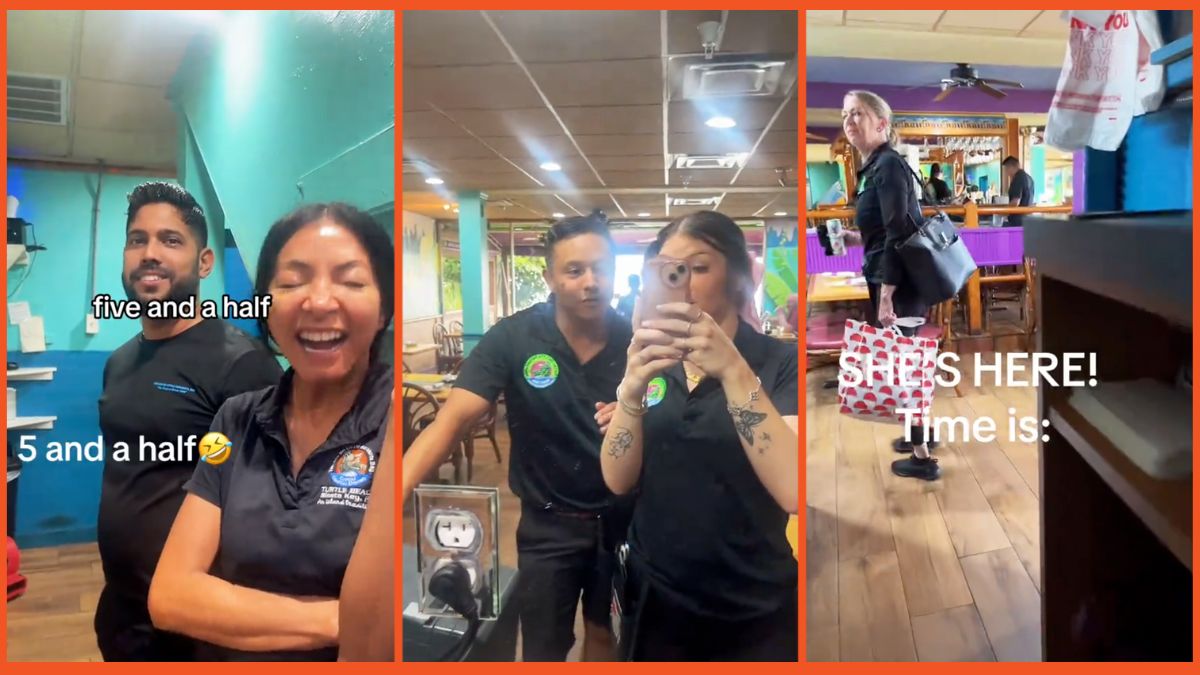You can travel the entire world, visiting restaurants at every stop, and you’ll find one thing in common across each and every one: The staff.
Obviously a fresh set of humans will make up the employees of each set of restaurants, but their archetypes — those unique quirks that make them who they are — are shared by a core group of servers, hosts, and back of house staff no matter where you go.
This phenomenon is recorded for the history books by TikToker Olivia (@pinkcuppycakeprincess), who documented one of the three types of server present in every restaurant on the planet — the time blind. Joining the lifer who’s been on the job for years and the fresh-faced newbie who cries in the walk-in, the perpetually late is a staple of every restaurant experience.
At Olivia’s workplace, the time blind bandit goes by Karen, and her co-workers know her well. As such, they decided to make a test of her inability to arrive on time, and started a betting pool. In a video uploaded to her page, Olivia makes her way through each of her fellow staffers, asking for guesses on when Karen will arrive for her scheduled 4pm shift. Answers range from 4:38 — so young, so hopeful — to 5:30, and by the end of the video we have our answer.
Karen is a nice cozy hour late to work, sauntering in at 5pm without a care in the world. Her co-workers don’t seem overly upset — Karen’s gonna Karen — at her tardiness, but they are certainly tickled to be proven right.
The TikTok is all fun and games, and Karen’s co-workers seem to have plenty of patience for her tardiness, but it can be an aggravating thing to have a friend — and what’s more an employee — who can’t seem to arrive anywhere on time. It’s a common problem across friend groups, workplaces, and family units, and it can crop up due to a number of factors.
If you know someone who’s perpetually late (See: My big sister), they likely struggle with punctuality due to one of three major factors. Impulsivity is a common one, as people who tend to be impulsive will start a task or get sidetracked without thinking about the time, as is inattentiveness. If your family member or friend is simply unaware of the time, of course they’ll be frequently late. Time blindness — the real kind, not the jokey version — is also a common factor, since some people are simply unable to accurately estimate how long a certain task or journey will take them. As a result, they’re frequently late, and the people waiting on them are frequently irritated.
Thankfully it seems Karen’s co-workers aren’t overly pressed by her chronic tardiness, but she could use to adopt a few coping methods to improve her punctuality. Timers, routines, organizational tactics, calendars, and preparation will all aid in getting Karen where she needs to be earlier, something her hard-working peers will no doubt thank her for.

